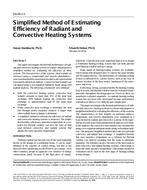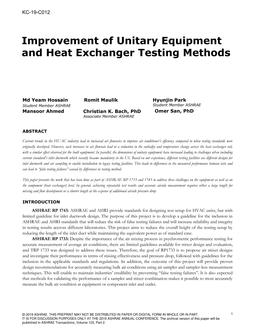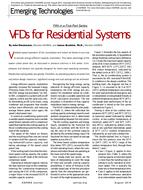A 243,000 square foot (23,600 m²) geothermal heat pump nursing hospital in northern New Hampshire becamefirst operational during 2006. Patient rooms in this four story building have direct standing column welli (SCW) wellwater to each of the 236 geothermal heat pumps. Two bed patient suites each utilize a separate 2 or 3 ton heat pump.Separate heat pumps are utilized to isolate potential room to room contagion. The standing column well earthcoupling system was designed for a low, five percent, advective bleedii to avoid NPDES permitting requirements. ByNew Hampshire State codes, commercial geothermal bleed volumes are monitored and recorded. Stabilizing annualaverage entering earth water temperatures extremes and annual increases, aka “temperature creep”, and its ease ofmitigation by small periodic advective ground water flow is discussed. No automatic bleed has been required since thestart of the geothermal system.
The paper will report on standing column well temperatures and their thermal transfer performance during arecent three year period; discuss reasons for avoided well temperature stabilizing “bleed”; constructionmethods/management and operational energy use. Two standing column well fields of eight standing columns each,16 SCW, serve a north and south side of the building, differing daily and annual temperature profiles and results fromapparent solar loads are provided for this paper. During the eight year operational period the entering watertemperatures have averaged in the 50°F (10°C) to 72°F (22°C) range. Early-on electrical and control issues andproblems and their resolutions are also reviewed.
Citation: ASHRAE Papers CD: 2014 ASHRAE Annual Conference, Seattle, WA
Product Details
- Published:
- 2014
- Number of Pages:
- 8
- File Size:
- 1 file , 2.3 MB
- Product Code(s):
- D-SE-14-C029


